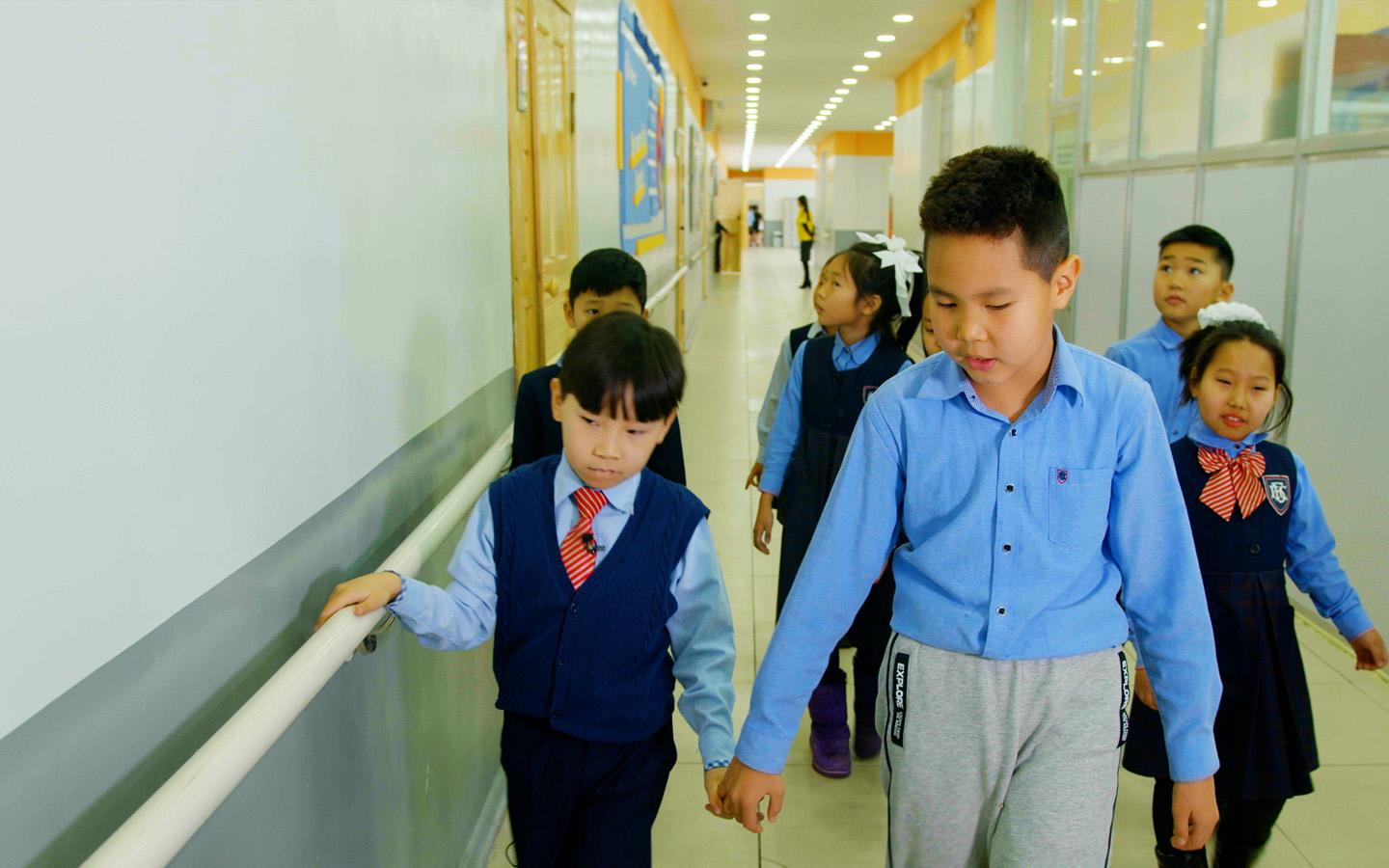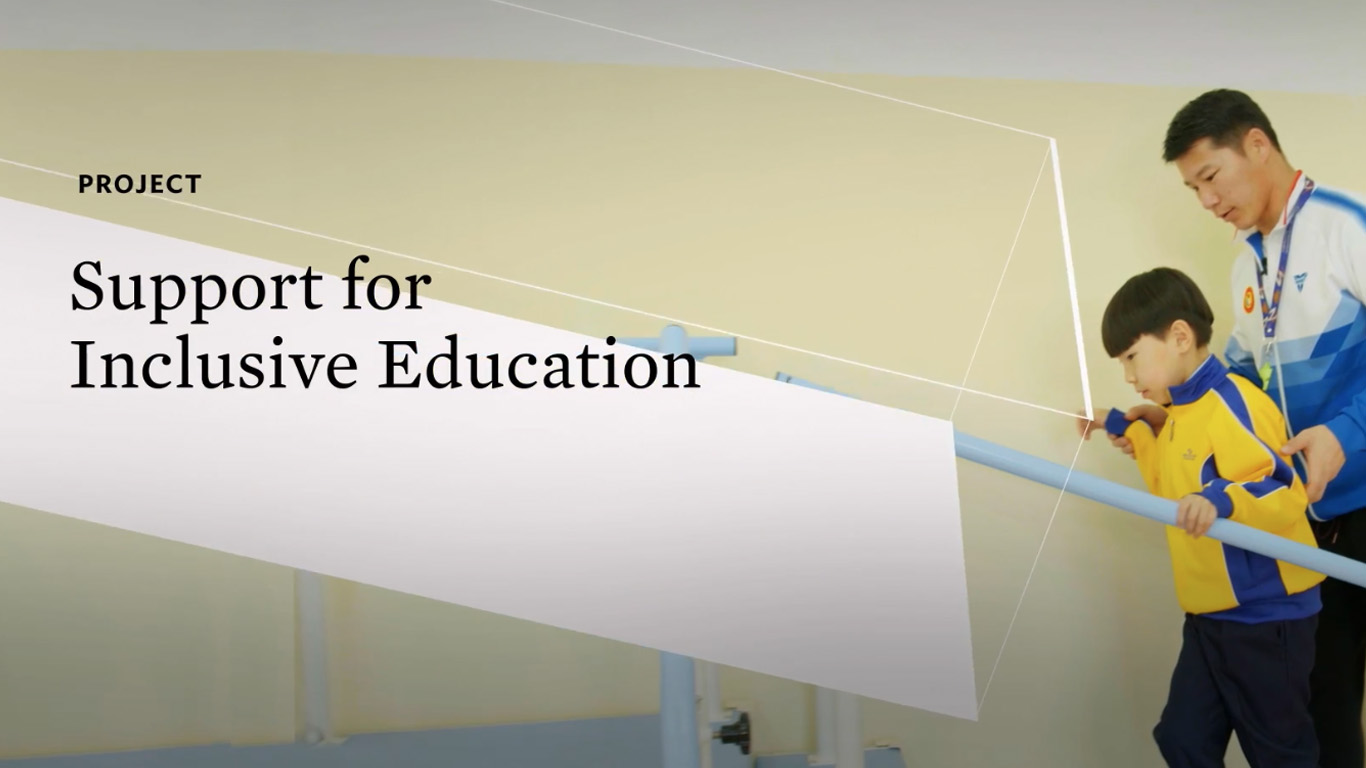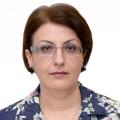Through a partnership between ADB and Japan, Mongolia is working to improve the lives of children with disabilities, starting with its schools. The country is making dramatic changes in its basic education facilities to ensure that every child has access to education.
Barriers to Inclusiveness
People with disabilities are often among the most excluded and marginalized groups in society. They are less likely to have access to basic services such as education, health, and income opportunities. In Mongolia, households with one or more members with a disability are twice as poor. About 80% of persons with disabilities do not have jobs.
Limited education is one key barrier hindering persons with disabilities from living their best life in Mongolia. Education is a gateway to more opportunities and active participation in society. Only 4 out of 10 children with disabilities are enrolled in schools. About half of children with disabilities aged 6–18 years cannot read, compared to only 4% of those without disabilities. In addition, one out of every five Mongolians with disabilities has not completed any level of education, compared to fewer than 4% of the rest of the population. But things are changing. ADB project officer Gohar Tadevosyan says, “Mongolia is aiming to improve the lives of children with disabilities by fostering inclusive education.” The government, in collaboration with ADB and with support from the Japan Fund for Prosperous and Resilient Asia and the Pacific, is implementing dramatic changes to improve the lives of children with disabilities through the Support for Inclusive Education Project.
Eradicating Barriers
The project aims to make schools accessible for children with disabilities, starting with kindergartens and grade schools in the three aimag (provinces) of Darkhan-Uul, Dornod, Dundgobi, and Songino-Khairkhan district of Ulaanbaatar. The project is currently being implemented in four schools and four kindergartens. Once finished, these schools will be models for replication for other schools in the country.
Through the Japan Fund for Prosperous and Resilient Asia and the Pacific grant, the project is building ramps, modifying toilets, and installing railings and braille signages in these schools. It is also working with local and global innovators to develop devices that can assist and augment the mobility and communication of people with disabilities. All these enhance children with disabilities’ access, functionality, and learning in schools.
The project is helping teachers and school administrators become more inclusive. For starters, it has been conducting capacity-building activities that foster inclusiveness in education culture, environment, policies, and practices in schools in the four provinces. It is also helping to develop and share teaching and learning materials and is collaborating with various learning institutions, such as the Mongolian National University of Education and the General Authority of Education, to conduct training activities. It also enables teachers and school administrators to work directly with organizations of people with disabilities, graduates of the Ulaanbaatar Special School for the Deaf, and the Institute for the Blind to train teachers in sign language and braille.
Education for All
The project has made headway in making schools more inclusive in Mongolia. The project’s schools have been equipped with model child development support classrooms, which serve as resource centers for other schools so they can learn how to build and develop inclusive cultures and environments on their campuses. The project has also provided the schools with devices that assist in augmenting children with disabilities’ mobility and communication. These devices aim to assist children with auditory, behavioral, communication, emotional, physical, and visual disabilities.
Four hundred seventy-three teachers and 46 school administrators and managers were trained in fostering an inclusive education culture, policies, and practices. Some 36 teachers from 21 provinces and 9 districts were specially trained to deliver inclusive education training in their respective provinces and districts. They cascaded their new skills through local dissemination training sessions, which were attended by about 2560 teachers. In addition, the project developed an Inclusive Education Teacher Manual and the Inclusive Education Training Module for Teachers and Directors of Schools and Kindergartens. Online video lessons on working with children with visual, hearing, behavioral, physical, learning, speech, and communication difficulties were also developed.
The project produced a range of awareness-raising materials—5 video animations, 15 posters, 5 podcasts, 7 additional new video content, and 3 sets of posters—to promote inclusive education among policymakers, teachers, and other education personnel, parents, and children. These materials were shared through social media and were widely used in the project’s capacity-building activities.
The project also reached out to children with disabilities. It identified 258 out-of-school children with disabilities and helped 154 of them enroll in schools or kindergartens.
The project did not only foster inclusive education on campuses. It also reviewed Mongolia’s inclusive education legislative and policy framework and recommended that inclusive education, in its broadest sense, be provided to all students without exception, thus laying an important foundation for the further development of Mongolia’s education. The package of newly adopted education laws promotes Universal Design for Learning– or UDL-based inclusive education.
These changes are just the beginning of Mongolia’s efforts to make its schools more inclusive. They will benefit not just children with disabilities but also the wider community. When schools are inclusive, more people will have access to education, helping them reach their full potential and enabling them to contribute productively to the country’s long-term growth.
"Mongolia is aiming to improve the lives of children with disabilities by fostering inclusive education."
~ Gohar Tadevosyan, ADB senior social development specialist
Share


